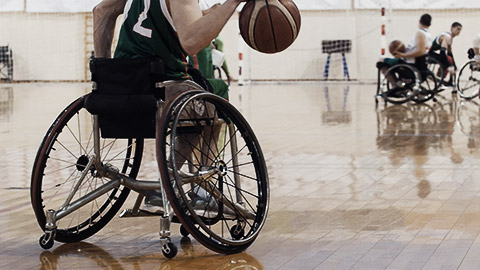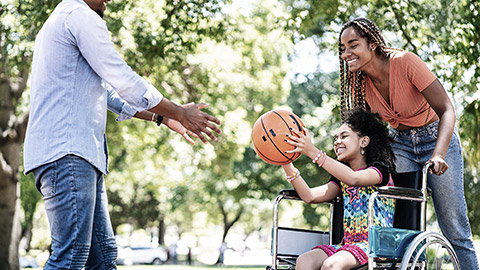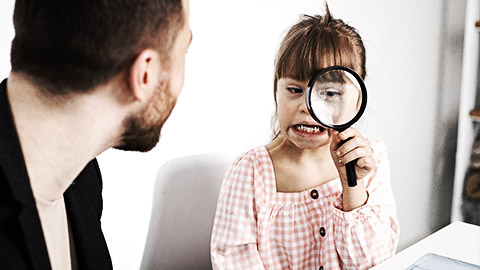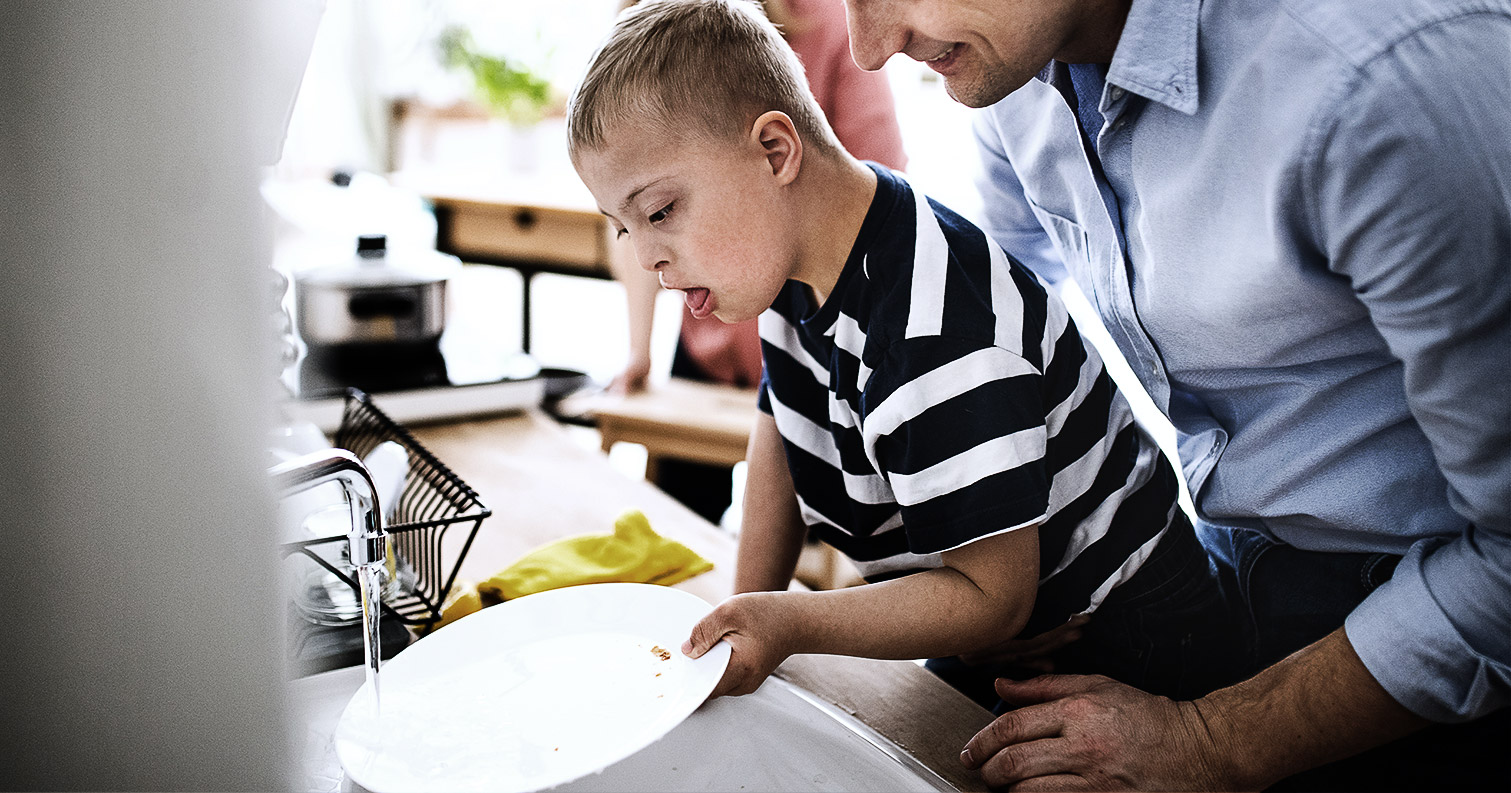In this topic we will look at ways to contribute to skills assessment, learn observational skills and competencies to help individuals in skills development, skills to Involving family members, carers, or other individuals identified by the person with a disability in the skills assessment process, Record the observations based on what is observed, avoiding assumptions or subjective opinions and provide feedback to your supervisor for ongoing support and development.
By the end of the topic, you will:
- Learn skills to observe the person with disability’s their skills and competencies in a manner that respects their rights and upholds their dignity.
- Support the engagement of family, carer or others identified by the person in the skills assessment.
- Record all observations accurately and objectively in consultation with supervisor, using terms that can be clearly understood.
- Provide feedback to supervisor about changes in the person’s demonstration of skills in different environments and changes in the person’s status likely to impact on skills development.

By actively contributing to skills development, you can support individuals with disabilities in building their capabilities, enhancing their independence, and promoting their overall well-being. contributing to skills development in disability requires a collaborative and holistic approach that empowers individuals with disabilities to reach their full potential, promoting their independence, inclusion, and overall well-being.
Skills Assessment Process followed by Organisations
The common skills assessment processes followed by organisations and services supporting people with disability include:
- Functional Assessment: Functional assessments are commonly used to assess an individual's abilities and limitations across different areas of functioning, such as mobility, self-care, communication, and social skills. These assessments may involve observations, interviews, and standardized assessments to gather information about the individual's functional abilities and challenges.
- Adaptive Behavior Assessment: Adaptive behavior assessments aim to evaluate an individual's practical and social skills necessary for daily living and independence. They assess skills related to communication, self-care, socialization, and community engagement. These assessments help identify areas where additional support and skill development may be needed.
- Psychological Assessment: Psychological assessments are conducted by psychologists or specialized professionals to evaluate an individual's cognitive abilities, emotional well-being, and behavioral functioning. These assessments may include cognitive assessments, behavioral assessments, and assessments of mental health conditions to provide insights into the individual's strengths, challenges, and support needs.
- Support Needs Assessment: Support needs assessments are conducted to determine the level and type of support required by an individual with a disability. These assessments consider the individual's functional abilities, personal goals, and preferences to determine the appropriate level of support in areas such as personal care, community participation, employment, and housing.
- Person-Centered Planning: Person-centered planning is a collaborative process that involves gathering information about an individual's strengths, interests, preferences, and support needs. This assessment process focuses on understanding the individual's goals and aspirations, and it actively involves the individual, their family, and their support network in decision-making and planning.
- Environmental Assessment: Environmental assessments involve evaluating the physical environment and identifying any modifications or adaptations needed to support the individual's accessibility and participation. This assessment may include assessing home environments, workplaces, and community settings to ensure they are inclusive and supportive of the individual's needs. It's important to note that assessment processes and protocols may vary between organizations and services. The specific assessments used will depend on the nature of the disability, the goals of the assessment, and the requirements of the organization or service conducting the assessment.
Assessment processes relating to ongoing skills development.
- Conduct an initial assessment to gather information about the individual's current skills, abilities, and areas of need.
- Use a combination of formal and informal assessment methods, such as observations, interviews, standardized assessments, and checklists.
- Involve the individual, their support network, and relevant professionals in the assessment process to gather a comprehensive understanding of their strengths, interests, and challenges.
- Consider the individual's cultural background, communication preferences, and any accommodations or adaptations needed to ensure a fair and accurate assessment.
- Collaborate with the individual and their support network to set meaningful and achievable goals that align with their aspirations, interests, and identified areas for growth.
- Goals should be specific, measurable, attainable, relevant, and time-bound (SMART goals).
- Ensure that goals are person-centered, taking into account the individual's unique needs, preferences, and abilities.
- Prioritize a balance between short-term and long-term goals, ensuring that progress can be regularly monitored and celebrated.
- Goals should be flexible and reviewed periodically to reflect the individual's changing needs and aspirations.
- Develop individualized plans that outline the strategies, resources, and supports required to achieve the identified goals.
- Collaborate with the individual and their support network to determine the most effective approaches for skill development, considering their learning style, interests, and available resources.
- Identify any accommodations, modifications, or assistive technologies that may be necessary to support the individual's learning and skill acquisition.
- Ensure that the plan promotes a holistic approach to skill development, addressing various domains such as communication, independent living, social skills, vocational skills, and personal growth.
- Regularly monitor and evaluate the individual's progress towards their goals.
- Use a variety of assessment methods, such as direct observation, performance-based assessments, self-assessment, and feedback from others.
- Collect and analyze data to measure skill acquisition and identify areas requiring further support or adjustment to the plan.
- Involve the individual in self-reflection and self-assessment to enhance their self-awareness and involvement in the ongoing development process.
- Adjust goals and strategies as needed based on the individual's progress, challenges, and evolving needs.
- Periodic assessments are conducted at regular intervals to evaluate progress towards the set goals and determine if any adjustments are needed in the skills development plan.
- These assessments allow for ongoing monitoring and feedback to track skill development, identify areas of improvement, and make necessary modifications to strategies and supports.
- Periodic assessments can include both formal assessments, such as standardized tests or checklists, as well as informal observations and self-assessments.
- They provide an opportunity to celebrate achievements, identify new areas of focus, and ensure that goals remain relevant and responsive to the individual's evolving needs and aspirations.

Everyone, including people with disability, has different skills and competencies. These skills and competencies can range from a complex skill to a simple one (such as having a friendly personality). Skills and competencies may include:
- Communication Personal hygiene
- Meal preparation
- Transport
- Money handling
- Dressing and grooming
- Eating
- Household task
In skills assessment, the skills and competencies, such as outlined above, are observed and documented in a manner that respects the rights of the person with disability. Protocols and processes for observation and documentation of these skills will vary across organisations. However, they must ensure that rights, including the privacy, confidentiality, and dignity of the person with disabilityare always upheld and respected When observing a person with a disability's skills and competencies, it is crucial to approach the process with respect for their rights and dignity. Here's a detailed explanation of this principle:
- Respect for Rights: Recognize that individuals with disabilities have the same fundamental rights as anyone else. This includes the right to privacy, autonomy, and self-determination. Ensure that the observation process respects their rights, obtaining appropriate consent and ensuring confidentiality.
- Dignity: Treat the person with dignity throughout the assessment. Maintain a positive and supportive attitude, emphasizing their strengths and capabilities rather than focusing solely on their disabilities. Use person-first language and demonstrate empathy and sensitivity.
- Non-discrimination: Avoid any biases or prejudices when assessing the person's skills. Base your assessment solely on their abilities and performance, without making assumptions or generalizations about their disability.
- Informed Consent: Before conducting any assessments or observations, obtain informed consent from the person or their legal representative. Explain the purpose, process, and potential outcomes of the assessment, allowing them to make an informed decision about participating.
- Collaborative Approach: Involve the person with a disability in the assessment process, encouraging their active participation and input. Seek their perspective, preferences, and goals, ensuring that their voice is heard and valued.

In line with the views under the social model of disability, family, friends, and carers are attributed as key contributors in assessment processes. They can provide valuable input and information to the skills assessment processes of the person with disability - as they most probably know the person better than the support staff. The provision of support is a collaborative effort among the multi-disciplinary staff (nurses, doctors, individual support worker, etc.), the person with disability, and their family and carers. Supporting the engagement of the client’s family and carers can be done through formal and informal meetings, consultation, questioning, and more. Involving family members, caregivers, or other individuals identified by the person with a disability can provide valuable insights and support during the skills assessment.
Here's an explanation of this responsibility:
- Collaboration: Consult and collaborate with the person to identify and involve their chosen family members, caregivers, or support persons. Respect the person's preferences and decisions regarding who should be included in the assessment process.
- Communication: Establish clear lines of communication with the identified individuals to gather information and insights about the person's skills and competencies. Engage in open and respectful dialogue, actively listening to their perspectives and observations.
- Coordination: Work together with the identified individuals to ensure a coordinated approach to the assessment. Share relevant information, discuss assessment goals, and maintain ongoing communication to ensure consistency and a holistic understanding of the person's skills.
- Consent and Privacy: Obtain appropriate consent from the person with a disability and the identified individuals to involve them in the assessment process. Respect their privacy and confidentiality by adhering to relevant privacy laws and ethical guidelines.

Crucial to the skills assessment in the ongoing skills development is recording the observations of a person’s skills and competencies. Organisations will have specific workplace documents prescribed for this. However, it is required that you are able to record all observations accurately and objectively. This can be done through:
- Recording facts rather than opinions
- Recording enough detail to capture what exactly happened
- Avoiding biases in your description
- Use active verbs (action words)
- Observing without interpreting (e.g. recording what you saw the person is doing rather than the reasons why he is doing it)
- Avoiding recording something that did not occur
- Recording observations in the order they occur
- Considering the context of when and where the observation was made Accurate and objective documentation of observations is essential in the assessment process.
Here's a detailed explanation of this responsibility:
- Accuracy: Record observations based on what you observe and assess during the skills assessment. Avoid making assumptions or including personal opinions or biases in the documentation. Ensure that the recorded information reflects the actual abilities and performance of the person.
- Objectivity: Maintain objectivity in your observations by focusing on observable and measurable aspects of the person's skills. Use factual language and avoid subjective interpretations or judgments.
- Clarity: Use clear and concise language when documenting observations. Avoid jargon or technical terms that may be difficult to understand. Ensure that the recorded information is accessible and easily comprehensible to others involved in the assessment process.
- Consultation with Supervisor: Seek guidance and feedback from a supervisor or an experienced professional during the documentation process. Discuss any questions, concerns, or uncertainties to ensure the accuracy and quality of the recorded observations.

Skills assessment is a collaborative effort among you (individual support worker), the rest of the support team, the person with disability, and the person’s family and carers. Part of your contribution to skills assessment is being able to provide feedback to your supervisor in the organisation about any changes in the person’s demonstration of skills in different environments as well as any changes in the person’s status likely to impact on skills development.
Processes and protocols for providing feedback relevant to the ongoing skills development of the person with disability will vary across organisations. Ensure that you work in consultation with your supervisor and colleagues, especially with matters that are unclear to you. As a disability support worker, providing feedback to your supervisor about changes in the person's skills and status is essential for ongoing assessment and support. Here's a detailed explanation of this responsibility:
- Regular Communication: Maintain open and regular communication with your supervisor regarding the person's progress, changes in their skills, and any factors that may impact their development. Share accurate and timely information to ensure effective support and intervention.
- Environment-specific Observations: Observe the person's skills in different environments, such as at home, in the community, or during specific activities. Note any variations in their performance across these settings, as the person's abilities may differ depending on the context.
- Status Changes: Report any significant changes in the person's status that may impact their skills development. This includes changes in their health, emotional well-being, medication, or personal circumstances that might affect their overall functioning and progress.
- Collaborative Problem-solving: Engage in collaborative problem-solving with your supervisor to address any challenges or barriers that may arise in the skills development process. Discuss strategies, modifications, or additional support that may be necessary to facilitate the person's progress.
- Documentation: Ensure that feedback provided to the supervisor is accurately documented and shared within the established communication channels. Maintain confidentiality and adhere to organizational policies and procedures regarding information sharing.
